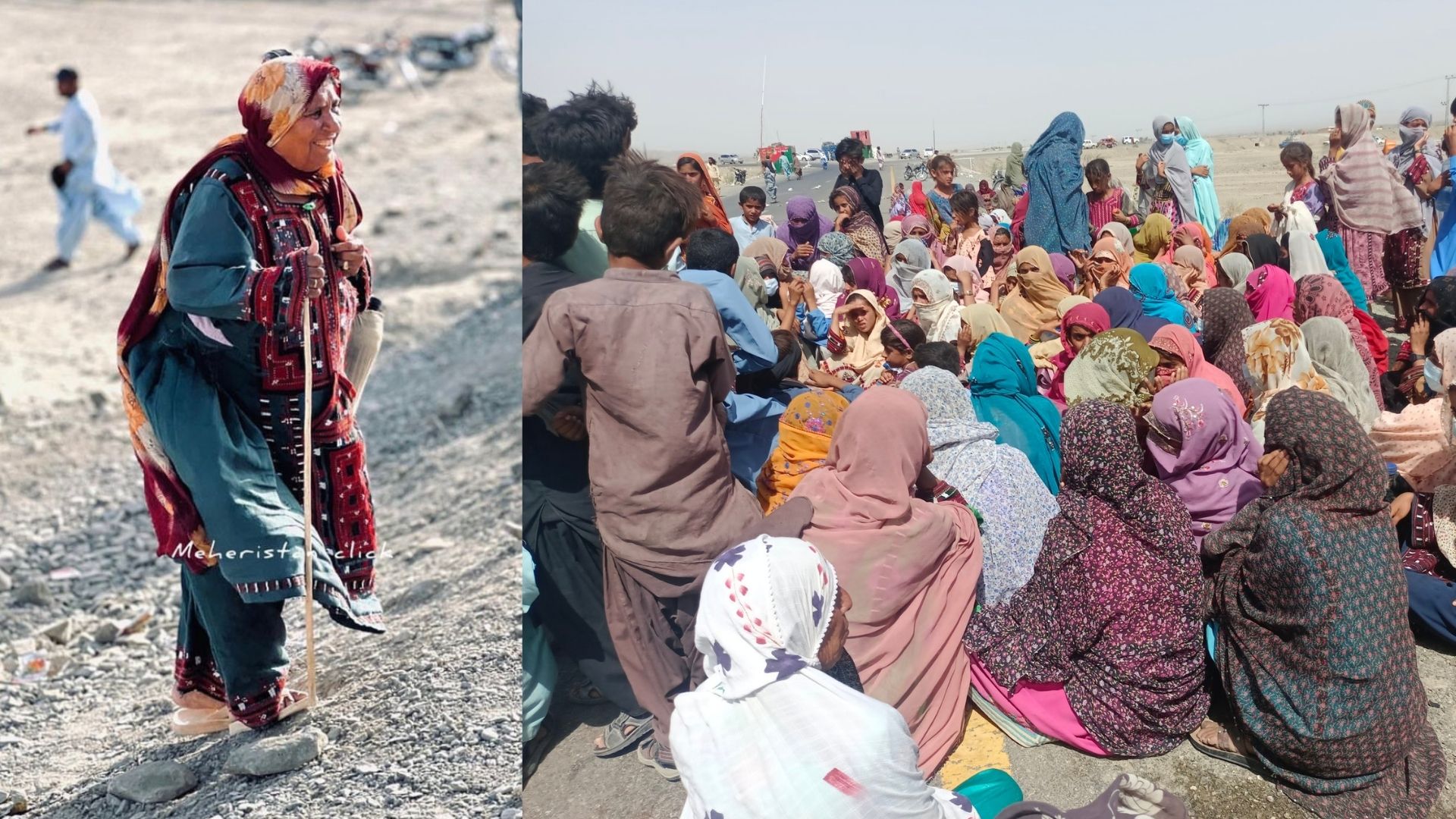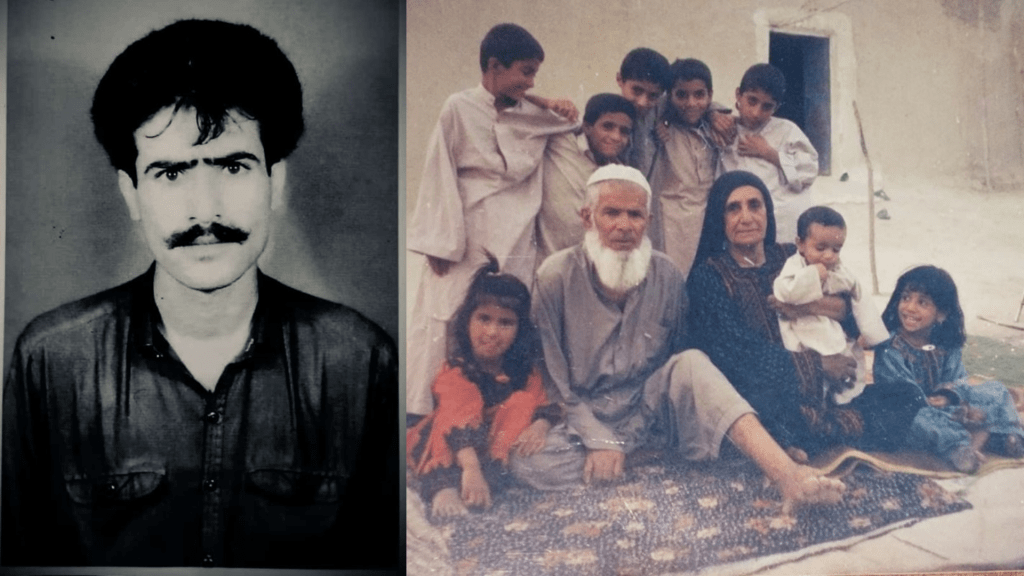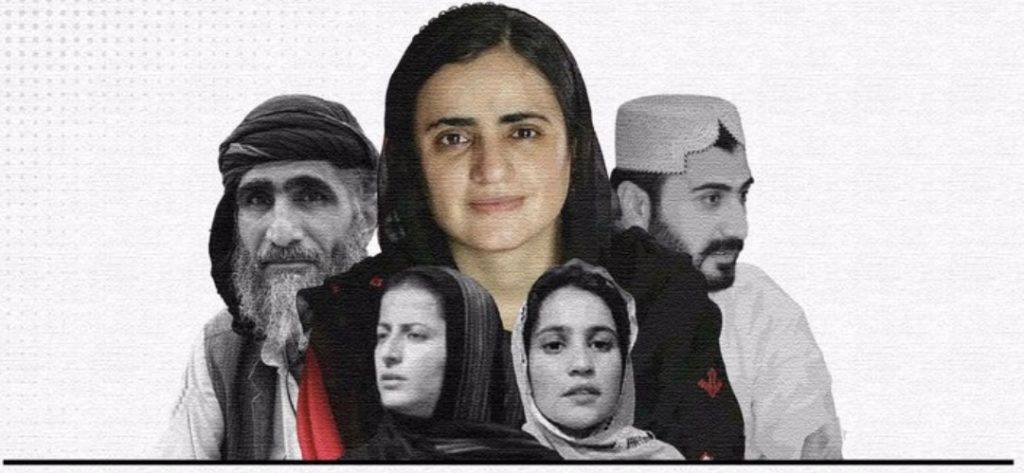Last Sunday, the Counter-Terrorism Department picked up a woman in district Kech and claimed she was planning to carry out a suicide attack on Chinese nationals.
The contents of the FIR against the 40-year-old Noor Jan could not have been more fictional. The CTD is known to register fake cases. An M.Phil student, Abdul Hafeez, had been whisked away in front of witnesses in Khuzdar but on March 30, he resurfaced in police custody in Dera Murad Jamali, some 269 kilometres away from Khuzdar, with the CTD claiming that he was detained from Goth Mohammad Mittal Magsi area of Jafarabad with explosives in his possession. The contents of Hafeez’s FIR were no less fictional than the one registered against Noor Jan. Hafeez is still behind bars and facing charges.
Last year, the CTD killed at least 47 people in several fake operations in Balochistan. Not much information was provided about their identities. When we (the Human Rights Council of Balochistan) investigated, we could establish the identities of 21. They were previously registered as missing persons, who had been abducted by the army and the intelligence and had been in their custody for weeks, months and, in some cases, years. The faces of the rest of the victims were mutilated beyond recognition. No investigation has been made by the government so far into the CTD’s fake operations and identities of the remaining victims. They were buried anonymously.
Since the military adopted a policy of collective punishment in Balochistan, women and children have been prime targets of the security forces. I have been documenting cases of human rights violation for years. Noor Jan is not the first Baloch woman who is facing the wrath of the State. Linking Noor Jan’s arrest to the Karachi University bombing, as some are doing, is in my opinion a dishonest analysis and one not based on facts.
Let us take a look at the incidents of the last five years.
In October 2017, the security forces raided an apartment in Karachi and whisked away several students. A woman, Farah Baloch, tried to stop them from abducting the students. The forces threw her from the third floor of the building. As a result, her spinal cord fractured. She has been paralysed since. Farah witnessed one such raid previously on the second day of her wedding in 2015 when the forces raided their home and whisked away four grooms, including Shah Nawaz Baloch, Farah’s husband. The next day, the forces brought the bullet-riddled bodies of all the four grooms to a local hospital.
In December 2017, the paramilitary Frontier Corps (FC picked up 19 people from Besima. One of the victims was Naz Gul, who was five months pregnant at the time. They were initially taken to a military camp in Mashkay, but later handed over to the agencies-backed tribal chief Ali Haider Mohammed Hasni, who kept them hostage at a property owned by him. They were forced to work as servants. The tribal chief refused to call for medical help as Nazgul’s symptoms from pregnancy-related complications grew fatal. She died on April 6, 2018.
On April 21, 2019, the Pakistan army forcefully disappeared a woman, Bibi Shehnaz, along with her infant son and elderly father in Awaran. Another woman, Sanam Baloch, her five-year-old son and 10-day-old baby girl, her mother-in-law and her 10-year-old brother-in-law were also abducted. They were kept in a military camp for several days.
In November 2019, the FC abducted four women from different parts of Awaran. The abducted were later photographed along with two female police officers and a cache of arms and ammunition, which the police claimed to have recovered from the women’s possession. The police said they were ‘facilitators of terrorists’ and shifted them to the Khuzdar Jail after booking them on terrorism charges.
On March 2, the security forces raided a house in Mashkay, district Awaran, and abducted a man named Rahim Bakhsh and his wife, Bibi Zargul. The forces later threw her near her home in a critical condition. She succumbed to the injuries sustained during the custody and died. Rahim Bakhsh is still listed as missing.
In May 2020, a four-year-old baby girl called Bramsh was shot and injured and her mother Maliknaz killed by State-backed mercenaries. A woman named Aasia Bibi was shot and killed by a police constable on October 18, 2020, in Tump. The murderer, Aslam, then went into hiding and has not been arrested. In September 2021, Taj Bibi, a poor woman, was shot dead by FC soldiers when she was out collecting wood in Turbat. The culprits were never arrested.
Last month, six women along with their young children were detained from a military check-point in Turbat, district Kech, and later framed in fake cases of terrorism. In the same month, a woman called Shahzadi was disappeared along with her six-day-old daughter, her brother, her father and her mother-in-law from the Gichk area of district Panjgur. Their whereabouts remain unknown.
The cases I have referred to above are those that have been reported. One can be fairly sure that there have been more cases that have gone unreported.
Such high-handedness has failed to suppress the voice of the Baloch people. It is time those at the helm of power in Pakistan revised their attitude towards Balochistan. Arresting Noor Jan and framing her in fake cases – and abducting the poet Habiba Pirjan – would cause more hatred and is likely to result in more violence in a province that deserves a chance to be heard with an open mind.
Abdulla Abbas is executive director of Human Rights Council of Balochistan. He lives in exile in Germany and can be reached at @AbdullahAbbas



